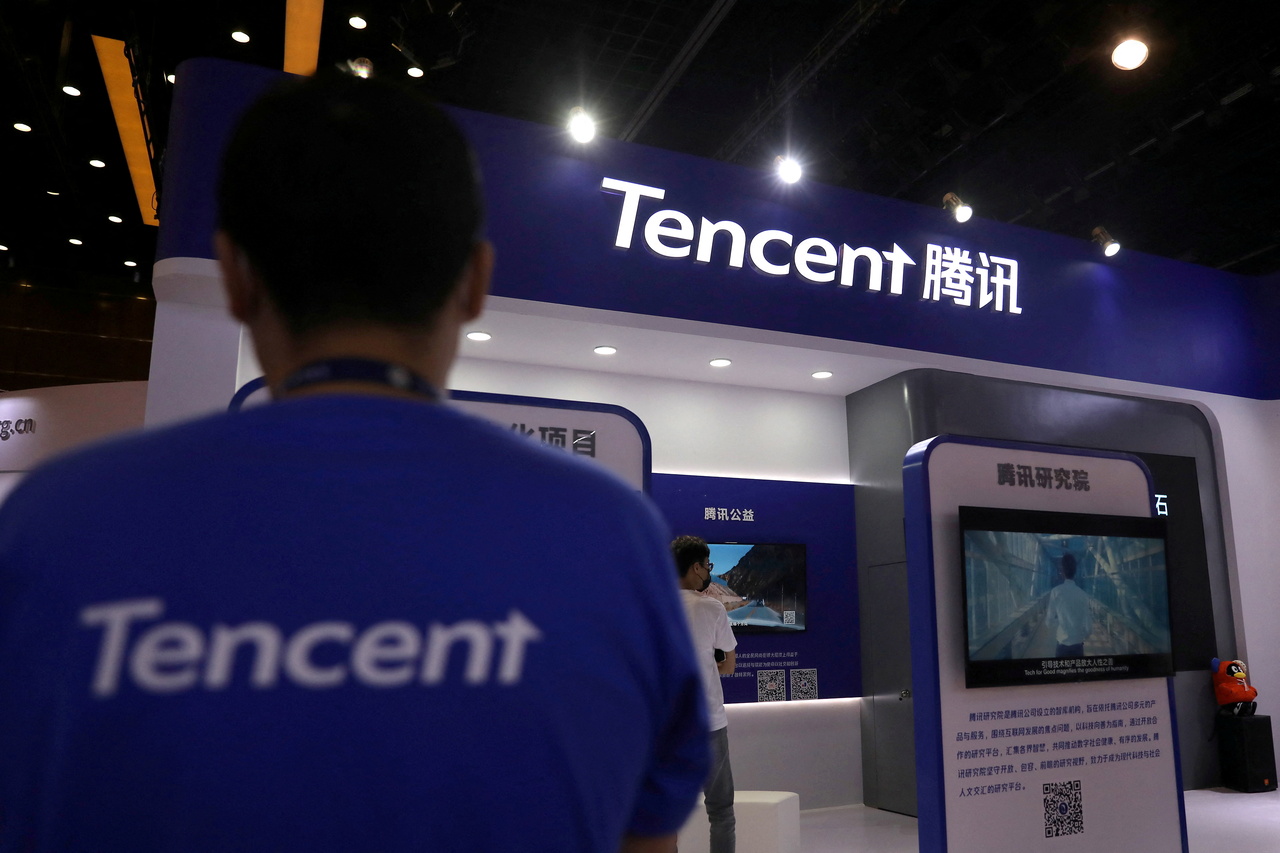Tencent leads China tech sell-off as earnings worries mount
Sign up now: Get ST's newsletters delivered to your inbox

Tencent on May 18 posted its slowest revenue gain since going public in 2004.
PHOTO: REUTERS
HONG KONG (BLOOMBERG) - Chinese tech stocks slumped on Thursday (May 19) as weak corporate earnings coupled with a dimming global growth outlook intensified selling.
The Hang Seng Tech Index was down as much as 5.1 per cent on Thursday, with Tencent Holdings and Alibaba Group Holding weighing the most.
Tencent tumbled more than 8 per cent after the tech behemoth reported its slowest revenue gain since going public in 2004.
Xiaomi Corp also fell ahead of its earnings release later in the day.
Thursday’s rout tracks a global sell-off, sparked by disappointing earnings from US consumer stalwarts that suggested an economic downturn may be on its way.
For China tech, top officials’ repeated commitments to support the battered sector - the latest from Premier Li Keqiang late Wednesday - have lacked the firepower to lift shares.
Tencent executives said it will take time for Beijing’s promises to translate into action.
“Tencent’s results suggest growth will be slower for longer, so the read through to the rest of China’s consumer facing technology companies is negative from a fundamental perspective,” said Mr Vey-Sern Ling, a senior analyst with Union Bancaire Privee.
"However, there are reasons to be more optimistic in the second half given the increasing supportive signals from senior levels of the government.”
Weighing broadly on Chinese stocks are new lockdowns following fresh Covid-19 outbreaks in key cities.
Policymakers have shown little signs of letting up on a Covid Zero policy even as the damage to economic growth and businesses becomes more evident.
Tencent’s disappointing numbers and downbeat assessment on Wednesday bode ill for an industry already struggling to come to grips with a new era of cautious expansion, after Beijing’s year-long clampdown campaign chilled every Internet sphere from e-commerce to gaming and fintech.
“We can clearly see that from the most senior level, there’s a pretty clear signal of support released. But for this to translate into real impact on our business, there is going to be a time lag,” Tencent president Martin Lau told analysts on a conference call. “It would take the specific regulators and ministries to translate this direction into real action.”
Bernstein analyst Robin Zhu called Tencent’s results “the one where almost nothing went right” in a post-earnings report.
“Given the lack of new game launches and headwinds in advertising, and the impacts of various regulatory changes over the past year, Tencent’s Q1 earnings were widely expected to look weak,” he noted. “That said, a quarter where almost every line fell below consensus and our estimates still felt like a kick in the shins.”
Tencent posted its slowest revenue gain since going public in 2004. Sales rose 0.1 per cent to 135.5 billion yuan (S$26.9 billion) for the three months ended March, missing the average forecast.
Net income slid 51 per cent to 23.4 billion yuan, lagging estimates despite a big gain from the sale of stock in Singapore’s Sea.
Tencent has so far largely escaped direct scrutiny from Beijing, but not fallout from the broader clampdown and economic malaise. It has shed roughly US$500 million (S$696 million) of market value since its 2021 peak, even as the company studiously endorses Beijing’s efforts to curb excesses in its once free-wheeling Internet sector.
Online advertising sales slid a worse-than-expected 18 per cent after contracting for the first time in the December quarter.
The business has been battered by China’s weakening economy and competition against TikTok-owner ByteDance, while big marketers of past years including online tutors and insurers tightened budgets after falling victim to separate regulatory crackdowns.
Tencent’s bread-and-butter gaming division - the world’s largest - also barely expanded revenue.
It is still on the wait-list for new monetisation licences, after regulators last month approved the first batch of domestic releases since July.
The company, expecting fewer gaming approvals in coming years, has already re-calibrated its pipeline to focus on quality over quantity, strategy chief James Mitchell said.
Given the new realities, executives said in March that international games, cloud software and WeChat’s video accounts will be their major strategic foci.
But overseas gaming sales expanded just 8 per cent in constant currency terms, trailing the double-digit growth of previous periods, in part because of a tough comparison from a year earlier when the world was largely locked down.
Tencent’s fintech and cloud division has become its No. 1 revenue driver.
But its 10 per cent growth was also worse than expected after Covid-19 lockdowns in cities like Shanghai and Shenzhen. Cloud revenue suffered a mild decline after the company cut loss-making contracts and ventured into services beyond infrastructure.
For now, the WeChat messaging app is still the payment and smartphone backbone of Tencent's sprawling online empire, and it is only going to shoulder a bigger role for money-making to try and offset struggling businesses like streaming and domestic games.
In April, Tencent shut its game streaming platform and hiked fees for its Netflix-style service for the second time in about a year, as short-video rivals keep luring away users and marketers.
Just like Mr Mark Zuckerberg's Meta Platforms, Tencent is taking a leap into the virtual realm of the metaverse in the longer term.
The Chinese company has revamped its ageing social app QQ with customisable 3D avatars and Unreal Engine graphics, and is hiring developers to make open-world titles.
But such endeavours, along with a steady pace of investment in overseas game studios, could pressure margins before they come to fruition.


